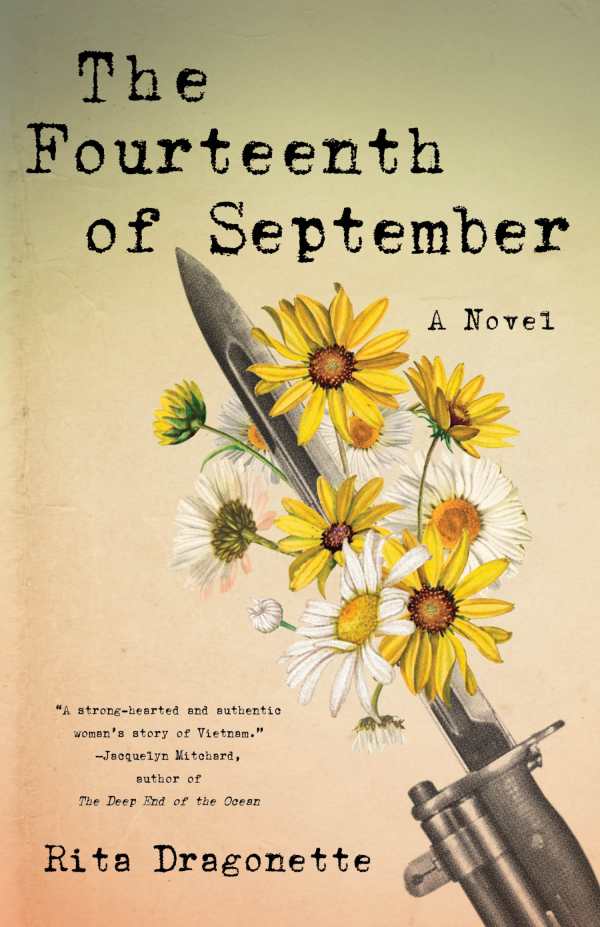The Fourteenth of September
The Fourteenth of September is a moving tribute to lives altered by the chance nature of the Vietnam draft.
Rita Dragonette’s illuminating historical novel The Fourteenth of September captures the Vietnam War through the heartaches of the women on the home front.
Judy Talton is a Central Illinois University nursing student who joins the Vietnam-era counterculture. She is torn between the desire to please her mother, a World War II nurse, and to follow her own changing beliefs.
Judy is drawn as an intelligent young woman, a curious yet cautious bystander who initially avoids drawing attention to herself. Despite the risk of exposing her army scholarship, she befriends a group of charismatic antiwar protesters. Her ambivalence grows into conviction through well-placed conversations and the Moratorium on Vietnam that extends into a march on Washington, DC.
Taking its title from the first birth date pulled in the 1969 draft lottery, the book avoids pitting black-and-white ideologies against each other. Judy witnesses the impact of the lottery on men in her social circle with compassion and anguish. The event becomes less about politics than about the emotional toll on the youths. Thoughtful characters, including an ROTC member, further illustrate how the question of involvement in the war is a personal decision that isn’t always clear-cut or moralistic. Even within the counterculture, factions divide, allowing characters to express diverging opinions.
A historically rich plot captures the unrest Judy experiences while simultaneously introducing more familiar elements of the campus novel. These include her romantic interest in David, a man whose self-centered focus makes him a frustrating partner, as well as differences with her roommate. Music and sexuality play significant roles without seeming overdone. From the dynamic conviviality of early meetings in the Tune Room—the lounge that doubles as a hub for fraught discussions—to later, volatile events, such as the Kent State shootings, the novel charts Judy’s responses with care.
Though the book sets up her participation in the army as a potential flashpoint, it never entirely poses a threat. The plot allows her to evade the issue for a long while and to ultimately remain afloat without troubling the waters. There’s also a tendency, at times, to introduce potent elements that fade, such as the revelation that one colleague was a deserter.
Noteworthy scenes feature encounters with Wil, a sensitive young man who begins to unravel, and David, whose moods bring forth sharp facets of Judy’s personality. At times she’s eager to please. At other times she’s all too aware of David’s flaws and wise enough to distance herself from them. The ebb and flow between a nineteen-year-old’s mistakes, vulnerability, and surprising moments of insight ring achingly true.
The Fourteenth of September is a moving tribute to lives altered by chance. The draft lottery and its rippling effects highlight a generation that came into adulthood amid devastating uncertainty.
Reviewed by
Karen Rigby
Disclosure: This article is not an endorsement, but a review. The publisher of this book provided free copies of the book and paid a small fee to have their book reviewed by a professional reviewer. Foreword Reviews and Clarion Reviews make no guarantee that the publisher will receive a positive review. Foreword Magazine, Inc. is disclosing this in accordance with the Federal Trade Commission’s 16 CFR, Part 255.

